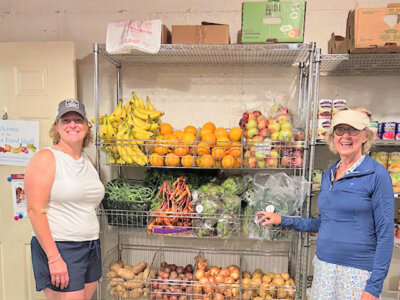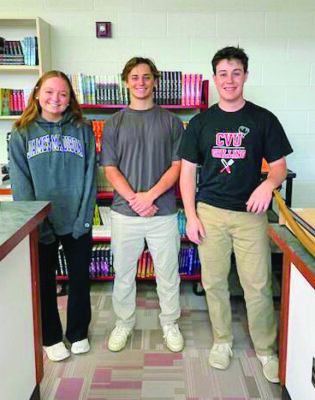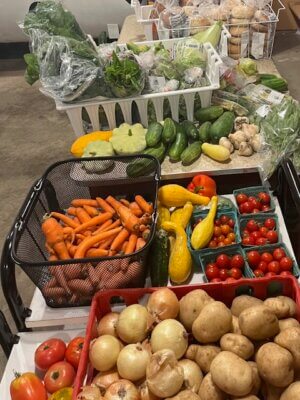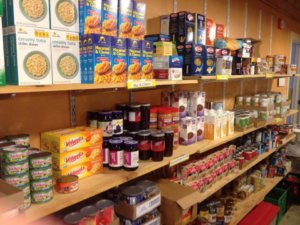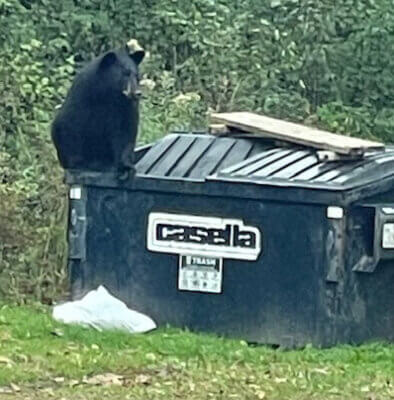Through good news, bad news, food shelf carrying on
(This story has been edited to have the correct name as the contributor.)
First, the good news. The food shelf is excited to announce that it has been awarded a Vermonters Feeding Vermonters grant again this year, allowing us to partner with local producers to provide fresh fruit, vegetables and meat for our families throughout the summer. This is especially important in this time of funding freezes by the current administration, the uncertainty of the continuation of existing programs and potential funding decreases for food programs.
In addition, the food shelf received a Vermont Fresh grant which will give additional support to our Capacity grant for our upgrade of the food shelf. To date we have purchased a new commercial refrigerator and a new dolly. We expect to do the major improvements in April. These will include painting and the removal and replacement of all existing shelving, along with additional shelving to provide a more organized, user-friendly space.
So, that is the good news. The not-so-good news has to do with the recent funding freezes and how they have been affecting individuals and organizations in this country.
Just two weeks into his term as president, Donald Trump illegally froze $3 trillion in essential federal support for families, states, Tribes and businesses. Despite challenges from the courts, the administration has doubled down and ignored federal judges’ orders to unfreeze these funds. As a result, millions of Americans are in a bad spot, with access to vital (and in some cases lifesaving) funds already approved by Congress suddenly cut off or suspended.
In response, Vermont nonprofits have been initiating legal actions to challenge the federal funding freeze, to protect essential services and support for food-insecure populations.
Sen. Bernie Sanders has been blasting the current admiration’s order to freeze all federal loans and grants, which he says constitutes “a dangerous move towards authoritarianism in America.”
The order, which was scheduled to begin Feb. 24, was issued in a memo from Trump’s acting head of the Office of Management and Budget. The directive instructs all federal agencies to “temporarily pause all activities related to obligations or disbursement of all federal financial assistance.” The memo did not specify which groups or programs would be affected but said that the freeze would not apply to Social Security or Medicare.
Sanders joined other Senate Democrats in denouncing the order, saying in a statement that the freeze would have a “devastating impact on the health and wellbeing of millions of children, seniors on fixed incomes and the most vulnerable people in our country.” Beyond being a dangerous move towards authoritarianism, it is, he said, blatantly unconstitutional. “Our founding fathers explicitly gave Congress the power of the purse. Under our system of checks and balances, no president has the right to choose which laws to follow and which laws to ignore.”
Vermont is one of 23 states initiating legal action against the funding freeze. As of Feb. 25, the freeze has been temporarily halted due to legal challenges. However, the situation remains fluid. Vermont officials continue to monitor developments to ensure that critical programs and services are not adversely affected.
As discussed previously, our food shelf gets much of our food, along with some grants, from the Vermont Foodbank. As the foodbank receives both state and federal support, any freeze on their funding would affect us also. Furthermore, our families rely on the Supplemental Nutrition Assistance Program, or SNAP (formerly known as Food Stamps), for support to purchase food. And SNAP is federally funded. The school lunch program (free and reduced) is also federally funded.
There is danger that the House Agriculture Committee will be asked to cut programs in its jurisdiction by up to $230 billion, with the money expected to come largely or entirely from SNAP. The problem is, substantial cuts to SNAP would have serious negative impacts on households with low incomes, not only in Vermont but in every state, adding greatly to food insecurity.
Charlotte Food Shelf director Peggy Sharpe said, “These ‘safety net’ programs and others are at real risk of being cut by this current administration’s budget. They are the essential supports that keep many of these families afloat.”
All that being said, please rest assured that we will do our best to, as they say, keep calm and carry on. We continue to be so very, very grateful for all the community support. We couldn’t do this without you. Please know that you are making a big difference to our community and our neighbors in need.
A giant thank you to all who have donated to the food shelf with money or time: Sara Margo for her contribution in memory of Claire Houghton, and Ann Castle (from the Charlotte Coop Buying Club). Also, Meg Berlin, Jennifer Hunt, Donna Fraser-Leary, Cecily Stokes-Prindle, Jocelyn Schermerhorn and John Henry Siedlecki.
Schedule:
- Wednesdays 4-6 p.m. and Saturdays 9-11 a.m. (second and fourth of the month, unless otherwise noted)
- Wednesday, March 12 and 26
- Saturday, March 15 and 29.
The food shelf provides the following types of assistance based on available funds: emergency heating assistance (fuel and electric), children’s assistance (non-marking sneakers for P.E. at school and winter clothing) and emergency assistance grants. For applications for grant assistance, forms are available at the food shelf and on the website.
Applicants must reside in Charlotte or North Ferrisburgh.
If you would like to donate to the Charlotte Food Shelf, your donation will help us support our neighbors in need. Giving online is easy and safe through PayPal. You can use your PayPal account or your credit or debit card. If you prefer to donate via check, you can make checks payable to Charlotte Food Shelf, Inc. and mail to: P.O. Box 83, Charlotte, VT 05445. For more information, call 802-425-2402.
A convenient way to support the food shelf is to sign up for monthly donations through PayPal, which will allow you to spread your donations out over the year.
The Charlotte Food Shelf is a nonprofit tax-exempt organization. Gifts are tax deductible within the guidelines of U.S. law.
The food shelf is accepting non-perishable items. Please bring items to the food shelf during regular distribution times. Unattended food can attract bears.
The food shelf welcomes volunteers to assist with food distribution, food shopping and special projects throughout the year. For more information, please email.
Related Stories
Popular Stories
If you enjoy The Charlotte News, please consider making a donation. Your gift will help us produce more stories like this. The majority of our budget comes from charitable contributions. Your gift helps sustain The Charlotte News, keeping it a free service for everyone in town. Thank you.
Andrew Zehner, Board Chair




